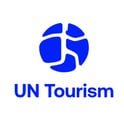UNWTO Hosts Tourism Data Workshop for Asia and the Pacific Members in Nepal
UNWTO has concluded a three-day workshop focused on helping Member States from across Asia and the Pacific better measure and manage their tourism sectors.
Recognizing the importance of regional cooperation as destinations across Asia and the Pacific re-open to tourism, UNWTO organized the workshop alongside the Ministry of Culture, Tourism and Civil Aviation of Nepal and the Nepal Tourism Board and with the support of the Ministry of Culture, Sports and Tourism of the Republic of Korea.
Approximately 200 participants from nine Member States took part in the workshop, which began with a high-level discussion around the theme of “Measuring the Sustainability of Tourism for people, planet and prosperity”. Speakers emphasized the need for cooperation at the national and international levels in order to generate the reliable data needed to guide the economic, social and environmental aspects of tourism for sustainable development.
Interactive training sessions
Following on from the opening discussions, UNWTO hosted a series of technical training sessions focused on tourism statistics, measuring the economic impact of tourism and measuring the sustainability of tourism, and offered an interactive platform for participants to learn and exchange good practices. Participants then reviewed fundamental basics on tourism statistics in relation to the UN statistical standard “International Recommendations for Tourism Statistics 2008”, before they explored the technical requirements for a successful TSA compilation.
The final session introduced the MST Statistical Framework, which offered unique insights on the importance of using MST indicators for policy development and the compilation of official tourism SDG indicators.
Pan-Regional Participation
Taking part in the workshop were high-level representatives from the National Tourism Administrations and National Statistical Offices of Nepal, Bangladesh, Cambodia, India, Indonesia, Malaysia, the Philippines, the Maldives and Thailand, and the United Nations Development Programme (UNDP) Resident Representative of Nepal.
RELATED LINKS:
About UN Tourism
The World Tourism Organization (UN Tourism) is the United Nations agency responsible for the promotion of responsible, sustainable and universally accessible tourism.
As the leading international organization in the field of tourism, UN Tourism promotes tourism as a driver of economic growth, inclusive development and environmental sustainability and offers leadership and support to the sector in advancing knowledge and tourism policies worldwide.
Our Priorities
Mainstreaming tourism in the global agenda: Advocating the value of tourism as a driver of socio-economic growth and development, its inclusion as a priority in national and international policies and the need to create a level playing field for the sector to develop and prosper.
Promoting sustainable tourism development: Supporting sustainable tourism policies and practices: policies which make optimal use of environmental resources, respect the socio-cultural authenticity of host communities and provide socio-economic benefits for all.
Fostering knowledge, education and capacity building: Supporting countries to assess and address their needs in education and training, as well as providing networks for knowledge creation and exchange.
Improving tourism competitiveness: Improving UN Tourism Members' competitiveness through knowledge creation and exchange, human resources development and the promotion of excellence in areas such as policy planning, statistics and market trends, sustainable tourism development, marketing and promotion, product development and risk and crisis management.
Advancing tourism's contribution to poverty reduction and development: Maximizing the contribution of tourism to poverty reduction and achieving the SDGs by making tourism work as a tool for development and promoting the inclusion of tourism in the development agenda.
Building partnerships: Engaging with the private sector, regional and local tourism organizations, academia and research institutions, civil society and the UN system to build a more sustainable, responsible and competitive tourism sector.
Our Structure
Members: An intergovernmental organization, UN Tourism has 160 Member States, 6 Associate Members, 2 Observers and over 500 Affiliate Members.
Organs: The General Assembly is the supreme organ of the Organization. The Executive Council take all measures, in consultation with the Secretary-General, for the implementation of the decisions and recommendations of the General Assembly and reports to the Assembly.
Secretariat: UN Tourism headquarters are based in Madrid, Spain. The Secretariat is led by the Secretary-General and organized into departments covering issues such as sustainability, education, tourism trends and marketing, sustainable development, statistics and the Tourism Satellite Account (TSA), destination management, ethics and risk and crisis management. The Technical Cooperation and Silk Road Department carries out development projects in over 100 countries worldwide, while the Regional Departments for Africa, the Americas, Asia and the Pacific, Europe and the Middle East serve as the link between UN Tourism and its 160 Member States. The Affiliate Members Department represents UN Tourism's 500 plus Affiliate members.
UN Tourism Communications Department
+34 91 567 8100
UN Tourism
